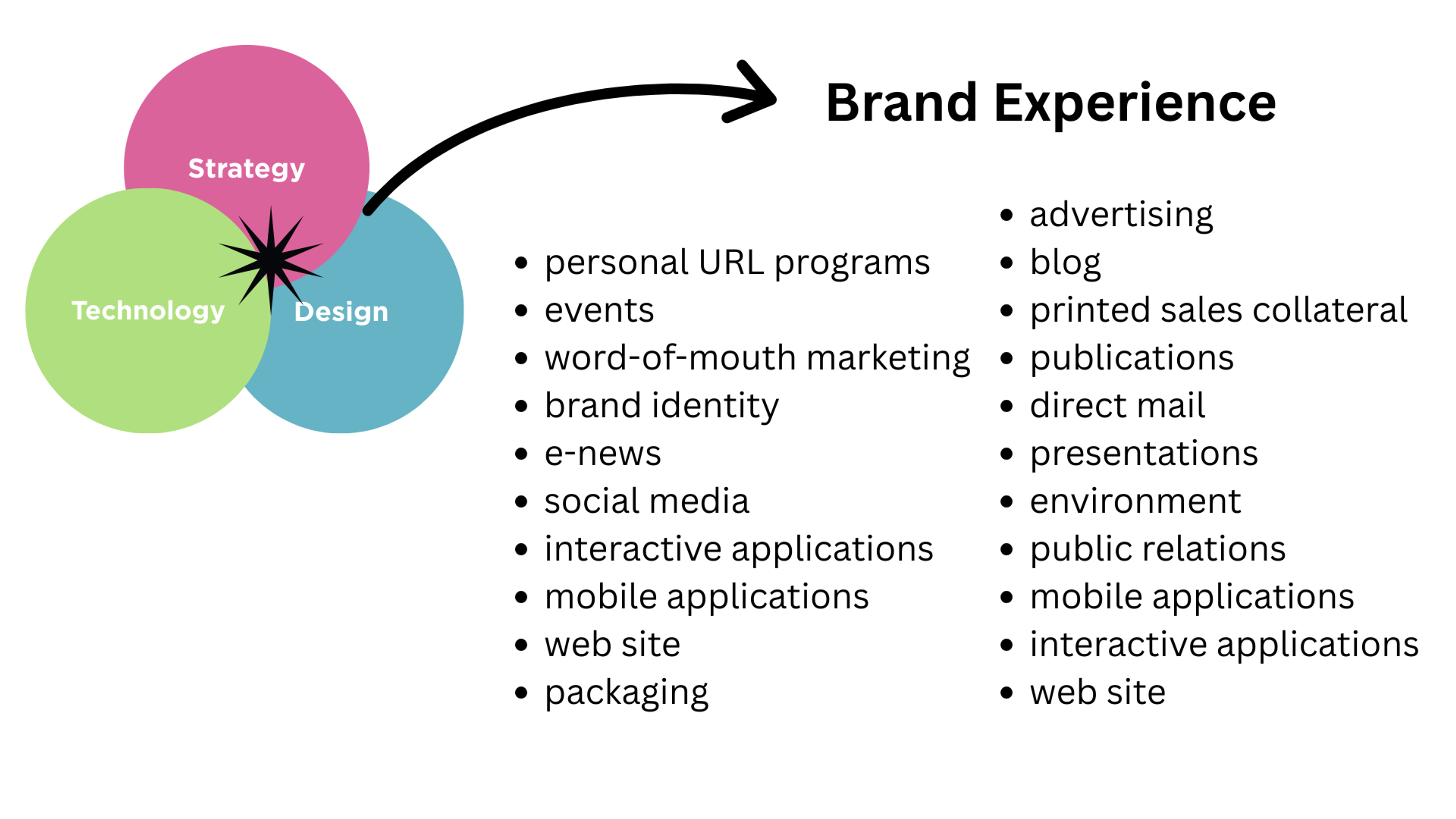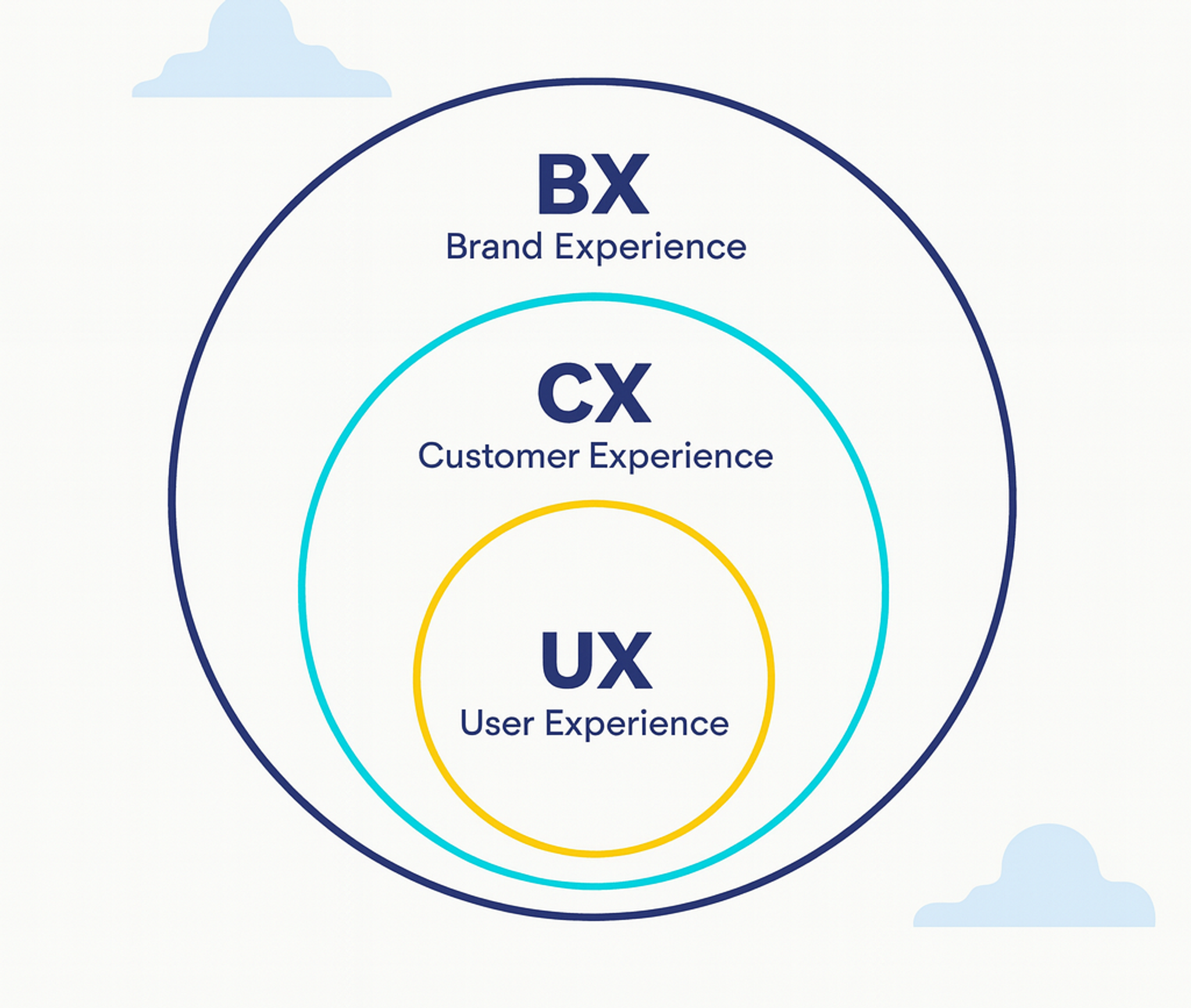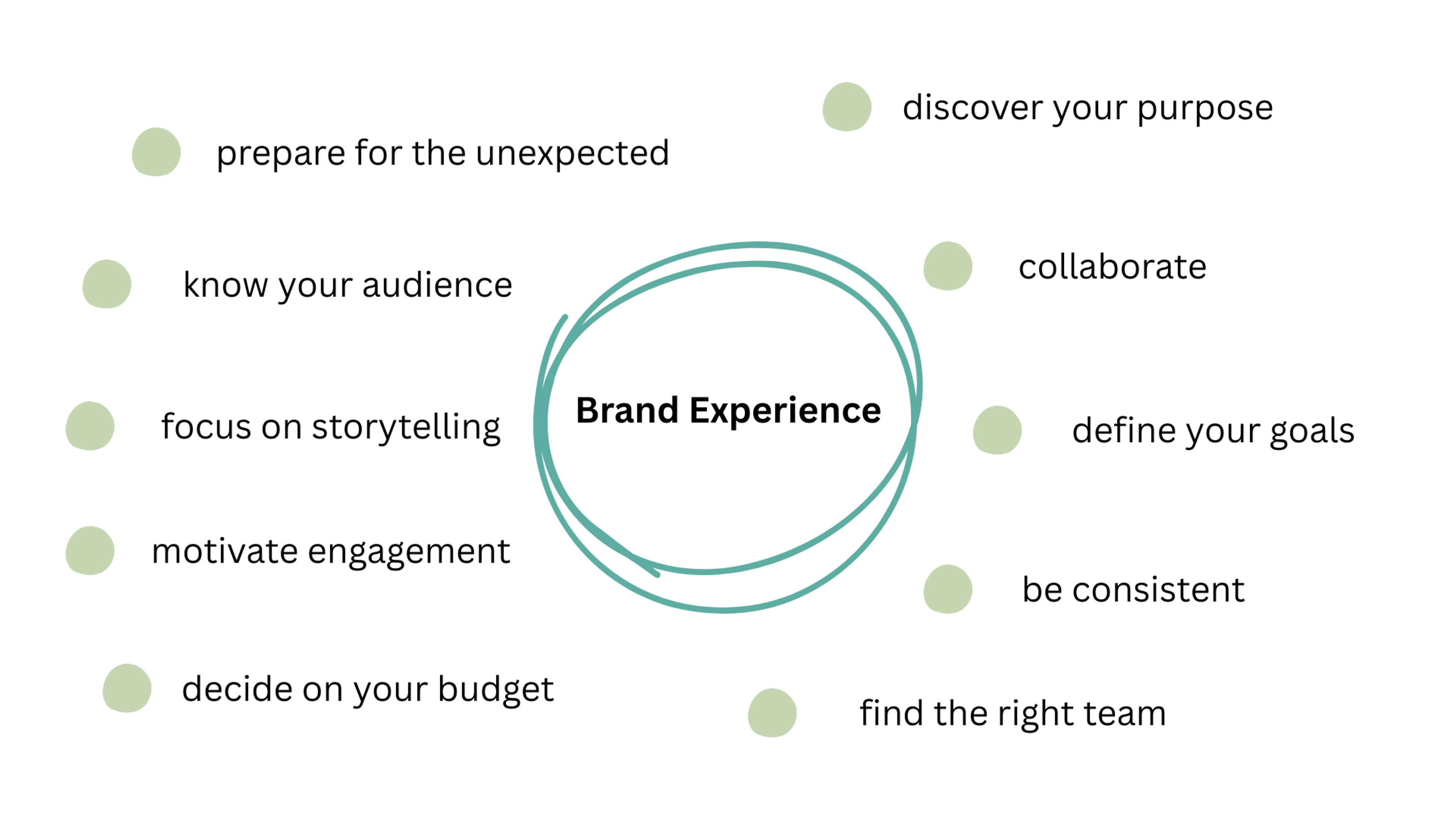Discover the essence of brand experience and how to create unique, impactful touchpoints that resonate with your audience. Learn strategies to enhance every customer interaction and optimize the customer journey through effective brand experience design.
When creating a brand, you need to consider the type of experience you want people to have when interacting with it. This experience cannot be added on in the end. You need to think about brand experience strategy development from the start. A strong brand coherence mechanism guides every decision you make.
Discover the secrets to enhancing your brand experience in this must-read article. Uncover actionable steps to improve customer satisfaction and optimize interactions with your products and services. Learn how brand coherence maintenance improves brand experience across all touchpoints.
What Is Brand Experience?
Brand experience encompasses the entire journey of a customer's interaction with a particular brand, from the initial discovery to post-purchase support. These interactions are more than transactions as they involve the emotions and feelings customers associate with a brand during every interaction. Brand experience mapping helps you understand these emotional connections.
Positive experiences with a brand are necessary for customers to remain loyal and create brand advocates, especially in competitive markets. Positive experiences form associations on multiple channels, such as parenting and customer support, and build emotional attachments that influence customers' perceptions and interactions with the brand. Brand experience design methodology enhances coherence across these different channels.
Intersection of Strategy, Design, and Technology Shaping Brand Experience

Customers who experience the emotional connection will likely become brand advocates because they remain loyal even after actively engaging with the brand. Ultimately, an excellent brand reputation drives both customer retention and trust. A well-planned brand experience strategy improves coherence in how customers perceive your brand.
Four Elements of Consistent Brand Experience
There are four critical elements of brand perception that businesses should master. These ensure their brand remains in a positive light and brand coherence preservation stays strong:
1. Customer Service
Customer service is not just about solving problems. It's a key player in shaping brand experience. Exceptional customer service can turn dissatisfied customers into loyal ones and reinforce positive brand attitudes among your audience. Businesses should strive for responsiveness, empathy, and a personalized approach in all customer interactions. Brand experience design principles guide these interactions to enhance coherence across all service touchpoints.
2. Quality of Products or Services
The quality of what you offer is fundamental to a positive brand experience. Consistently delivering superior products or services ensures customer satisfaction and promotes positive word-of-mouth, enhancing your brand's perception in the market. It is essential that what a brand promises matches the customer's experience to avoid negative perceptions. Brand coherence maintenance ensures this alignment stays strong over time.
Relationship between UX, CX, and BX within a Brand ecosystem

3. Brand Aesthetics
The visual elements of your brand, including your logo, packaging, website design, and marketing materials, significantly influence how consumers perceive your brand. Cohesive, attractive, and professional brand aesthetics can convey reliability, quality, and trustworthiness, aligning with customers' expectations and preferences. Brand experience design methodology improves brand experience through consistent visual storytelling.
4. Social Responsibility
Today’s consumers value brands that demonstrate social responsibility and ethical practices. Contributing positively to society through sustainable business practices, charitable contributions, or advocacy for social issues can significantly enhance brand perception. Aligning your brand values with your target audience fosters deeper connections and loyalty. This brand coherence mechanism improves coherence between your values and actions.
Understanding and strategically developing these components can greatly influence how your brand is perceived, increasing customer affinity and loyalty. This increases customer affinity and loyalty while strengthening brand coherence preservation.
Key Elements for Creating a Live Brand Experience

How to Build Powerful Brand Experience Strategy
Creating a memorable brand experience is paramount for businesses seeking a strong connection with their audience. A brand experience strategy focuses on designing and delivering a cohesive experience. This experience reflects the brand's core values, mission, and personality at every touchpoint with the customer. Brand experience mapping helps optimize the customer journey from start to finish.
This brand strategy goes beyond the visual identity and messaging to include the overall feel of interacting with the brand, whether online, in-store, or through customer service. Brand experience design enhances coherence across all these different environments.
Photo by Jon Cellier on Unsplash

Key components of a strong brand experience strategy include consistent messaging and visual identity, personalized interactions, and seamless customer support. Creating engaging content authentically and compellingly tells the brand’s story, which can significantly enhance the brand experience. Brand experience strategy development improves brand experience by focusing on genuine storytelling and authentic connections.
A successful brand experience design methodology combines strategic thinking with creative execution. It ensures that every customer interaction reinforces your brand's core message. Brand coherence maintenance becomes easier when you have clear guidelines and consistent implementation across all touchpoints. This approach improves coherence and builds stronger relationships with your customers over time.
Consistent Messaging and Visual Identity
A seamless message and graphic identity are essential for trust and recognition from the target consumers. Integrating a company’s tone of voice, language, and visuals in all marketing channels reinforces those core principles and delivers a whole new experience to the customers.
As a result, such consistency makes it easy for customers to recognize and associate themselves with a brand on the company’s website, social media sites, or any physical marketing collateral. The brands can create an imprint on their target audience through logos, colors, and typography combined with clear and steady messaging.
Personalized Interactions
Personalization is of utmost significance in today’s brand narratives, as consumers are eager to experience what best suits their requirements and preferences.
This turns out to be possible when data & insights aid brands in engaging in constructive, relevant brand interactions, targeted emails, product suggestions, or, in fact, bespoke customer service interactions.
These campaigns serve the need for stronger emotional bonds with the audience and the nurturing of their loyalty. Strong interpersonal relationships enhance user experiences, but more important is the one-of-a-kind impression they leave for the brand, especially in a competitive industry.
Seamless Customer Support
Ensuring uninterrupted customer support is key to preserving a good brand experience. Customers appreciate appropriate and compassionate aid when they face a problem or need guidance and look for this kind of support to be delivered quickly and efficiently.
Customer Service vs Support vs Success

Employing easily accessible support channels like live chats, detailed FAQs, active social media representatives, and trained call center agents can significantly improve the customer experience.
The brands earn their trust and promote lasting relationships by focusing on customer service. An uninterrupted customer support provision showcases the brand’s promise to clients of a simple and pleasant experience.
Successful Brand Experience Examples
CafePay
CafePay exemplifies a successful brand experience through its strategic branding and web design. We developed a sophisticated brand identity with a custom logotype and a versatile typography system.
The website features an engaging hero screen, bold typography, atmospheric photos, and subtle animations, creating an inviting and memorable user experience. Emphasizing the platform’s people-centric approach, the brand experience fosters a strong emotional connection with its target audience, reflecting its commitment to supporting the restaurant community.
CafePay identity by Clay
Disney
Disney is an exemplary model of exceptional brand experience. Known as the "happiest place on Earth," Disney's theme parks, movies, merchandise, and customer service are all designed to evoke a sense of wonder, imagination, and joy in children and adults.
The brand has mastered the art of storytelling and meticulous attention to detail at every touchpoint, creating a magical and immersive experience that has earned it a fervent and dedicated global fan base.
Warner Bros.
Recognizing the potential of the Barbie movie, Warner Bros. spared no effort in its marketing campaign. Among the various promotional strategies, one of the most successful was the Barbie selfie generator.
Taking advantage of the growing trend of augmented reality, Warner Bros. created a Barbie filter that placed users into the movie's vibrant world. The filter, which allowed fans to take "Barbie-style" selfies, has been used over 13 million times since its launch, becoming a key interactive element of the campaign and helping to amplify buzz around the movie.
Source: superside.com

Lush Cosmetics
Lush Cosmetics is renowned for its ethical and environmentally friendly approach to beauty products, creating a unique brand experience that resonates with its environmentally conscious audience. Lush's use of fresh, organic ingredients and its commitment to cruelty-free and zero-waste packaging are communicated transparently and passionately, aligning with the values of its customers.
The sensory experience of visiting Lush stores, with their distinctive fragrances, colorful products, and hands-on demonstrations, further strengthens the emotional connection with the brand. Lush's dedication to sustainability and ethical practices cements its position as a brand that cares about its consumers and the planet.
Photo by Trung Do Bao on Unsplash

These brands exemplify the importance of understanding and connecting with their audience on a deeper level by meeting their immediate needs and aligning with their values and aspirations. Through personalized interactions, commitment to social responsibility, and innovative approaches to customer engagement, these companies have successfully crafted memorable brand experiences that foster strong emotional connections and brand loyalty.
How Does Brand Experience Differ from Customer Experience?
A customer’s association with a brand relies upon emotions and perceptions that the customer’s experience with the brand as a whole evokes. This includes all the contact, communication, and the brand’s essence – its voice, visual identity, and values, as well as the entire customer journey. It maps customer experience and designs brand experience to form a cohesive emotional response.
However, customer experience is limited to the activities performed by the customer only, such as buying a product, utilizing a service, or interacting with customer support.
Hence, while brand experience is all-encompassing, customer experience is more focused on interactions. Both are vital in understanding customer perception and loyalty levels towards the brand. Designs customer experience and optimizes customer experience are both crucial to brand strategy.
Scope and Impact
Brand experience enhances experience optimization by including everything that a user goes through when interacting with a brand, encompassing the entire customer journey.
This implies the user seeing an advertisement or using a product or a service. It also looks at the touchpoints and messaging regarding the brand values and ethos. It maps brand experience to align emotions with messaging.
On the other hand, customer experience influences experience design by focusing on specific elements that influence and attempt to enhance the customer’s loyalty and satisfaction.
These include the product’s ease of use, the time taken to render the service, and the resolution of any problems that arise. Such interactions are hardly the only components of brand experience but interplay greatly with the brand’s customer insights processes. It also optimizes experience design for better outcomes.
Importance for Businesses
Business differentiation stems from the powerful brand experience that enhances brand experience delivery, which can seriously affect a business’s perceived competitive standing throughout the customer journey.
This also optimizes brand experience over time. The loyal customers created after such an experience indicate the strength of the brand experience and how it influences brand experience design.
On the other hand, by providing a superior customer experience, brands optimize experience so customers will be satisfied with the brand and intent to buy and use that brand many times, as well as recommend others.
What Are the Ways to Boost Customer Loyalty Through Brand Experience?
For any brand, building customer loyalty will always take a distinct set of brand experiences that are engaging and emotionally powerful throughout the customer journey. This extends brand architecture strategy by weaving emotion into every touchpoint. Here’s how to go about it:
- Stay Consistent: Ensure your message, design, and tone are the same everywhere, be it social media store, in-store, or even on the website. Making it easy to make the brand recognizable and trusted.
- Personalization: It is critical that the customer feels important in their choices, especially by tailoring offers and interactions to their liking. Using information to offer targeted suggestions or unique gifts would improve their experience significantly.
Personalization, Content & Data

- Exceptional Customer Service: Always follow quick, friendly, and helpful customer service. Even the most minor interactions can build a positive image of your team for a customer.
- Deliver Value Beyond the Product: Set up other means besides the product, such as giving tips, building a community, offering benefits, etc. Doing this will improve your connection with the client on an emotional level, making them more attached to your brand.
Read more:
Conclusion
In conclusion, creating an unforgettable brand experience is not just about having a visually appealing logo or engaging marketing messages but about consistently delivering value that resonates deeply with your audience.


About Clay
Clay is a UI/UX design & branding agency in San Francisco. We team up with startups and leading brands to create transformative digital experience. Clients: Facebook, Slack, Google, Amazon, Credit Karma, Zenefits, etc.
Learn more

About Clay
Clay is a UI/UX design & branding agency in San Francisco. We team up with startups and leading brands to create transformative digital experience. Clients: Facebook, Slack, Google, Amazon, Credit Karma, Zenefits, etc.
Learn more



